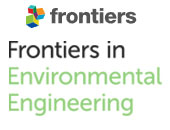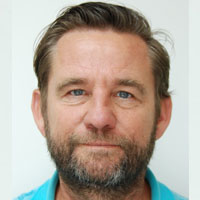- First Round Abstract Submission: March 04, 2026
- Extended Pre Early Bird Registration: March 05, 2026
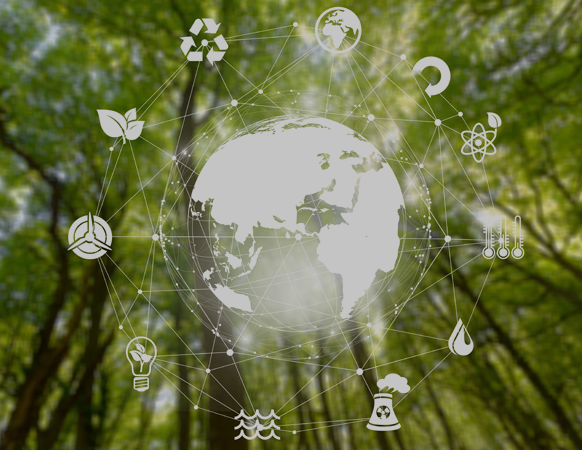
About the Conference:
GEST-2026
Following the successful two editions of Global Conference on Environmental Science and Technology held on November 04–06 in London (GEST 2024), United Kingdom and on October 15-17, 2025 in Rome, Italy (GEST 2025), United Scientific Group is pleased to welcome you to the third edition of the Global Conference on Environmental Science and Technology (GEST 2026), scheduled for October 19-21, 2026 in Valencia, Spain.
-
-
Student Opportunities
-
Industry & Academic Partnerships
-
Networking with Top Researchers
Plenary - Keynotes

David G Stork
Stanford University
CA

Dragutin Petkovic
San Francisco State University
CA

Dinesh Manocha
University of Maryland
MD

Gunnar Carlsson
Stanford University and BluelightAI
CA

Russell W Belk
York University
Canada

Craig Kaplan
Chief Executive Officer
iQ Company, CA

Demetri Terzopoulos
University of California
CA

Tara Javidi
The University of California
CA

Sabre Kais
North Carolina State University
NC

Seth Dobrin
Chief Executive Officer
Qantm AI, CT

Neil F Johnson
George Washington University
WA

Wojciech Szpankowski
Purdue University
IN
Countdown
To collaboration, innovation, and a sustainable future
GEST-2026
Why Attend GEST 2026
Renowned Speakers
Keynote presentations from internationally recognized experts.
Cutting-edge Research
Presentations and discussions on the latest research developments and technological innovations in environmental science.
Networking Opportunities
Engage with global leaders, researchers, and professionals from academia, industry, and policy-making bodies.
Poster Sessions
Participate in interactive workshops and poster presentations to gain deeper insights and practical knowledge.
Why Choose Us
0+
Speakers
0+
Abstracts
0+
Attendees
0+
Years Experiance
Keynote Speakers

Hamid R Habibi
University of Calgary
Canada

Raul Munoz
University of Valladolid
Spain

Ivet Ferrer
Polytechnic University of Catalonia, Spain
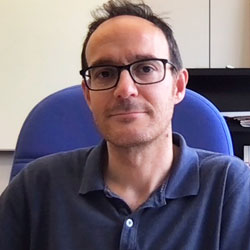
Juan Carlos Jimenez Munoz
University of Valencia, Spain

Joao P M Torres
Federal University of Rio de Janeiro, Brazil
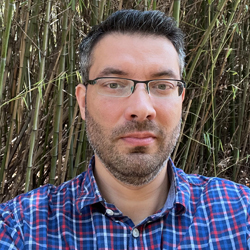
Vilim Filipovic
The University of Queensland
Australia
Scientific Sessions
- Climate Change: Challenges & Mitigation
- Climate Resilience & Adaptation
- Environmental Pollution: Causes & Control
- Environmental Toxicology & Human Health
- Emerging Pollutants
- Environmental Technology & Modeling
- AI & Machine Learning for Climate Modeling
- Environemental Policy and Governance
- Plastic Waste Management & Reduction Strategies
- Environmental Impact Assessment
- Waste to Energy Technologies
- Bioenergy and Biomass Conversion
- Circular Economy
- Sustainable Resource Management
- Net Zero Emissions and Carbon Capture
- Sustainable Energy Transitions
- Natural Hazards and Disaster Management
- Remote Sensing & Satellite Data for Environmental Monitoring
- Hydrology and Water Resource Management
- Ocean and Coastal Management
- Marine Pollution and Microplastics
- Forest Conservation and Land Use Change
- Biodiversity Loss due to Climate change
- Restoration Ecology and Habitat Restoration
- Sustainable Agriculture and Soil Health
- Agroecosystems and Environment
- Ecosystem Services and Nature Based Solutions
Submit your abstract today and be part of global discussions on environmental challenges and solutions.
Our Session
Topics of Discussion
Climate Change: Challenges and Mitigation
Climate Resilience and Adaptation
Environmental Pollution: Causes and Control
Environmental Toxicology and Human Health
Emerging Pollutants
Plastic Waste Management and Reduction Strategies
Environmental Technology and Modeling
AI and Machine Learning for Climate Modeling
Remote Sensing and Satellite Data for Environmental Monitoring
Environemental Policy and Governance
Ocean and Coastal Management
Marine Pollution and Microplastics
Forest Conservation and Land Use Change
Ecosystem Services and Nature Based Solutions
Biodiversity Loss due to Climate change
Restoration Ecology and Habitat Restoration
Sustainable Agriculture and Soil Health
Agroecosystems and Environment
Pre Early Bird Registration
Register
€599
Academic
- Welcome Coffee
- Conference Material
- Lunch, tea/coffee breaks
- WiFi in meeting rooms
€699
Industry
- Welcome Coffee
- Conference Material
- Lunch, tea/coffee breaks
- WiFi in meeting rooms
€549
Delegate
- Welcome Coffee
- Conference Material
- Lunch, tea/coffee breaks
- WiFi in meeting rooms
€499
Student
- Welcome Coffee
- Conference Material
- Lunch, tea/coffee breaks
- WiFi in meeting rooms
GEST-2026
2025 Conference Highlights
Testimonial
Hear from the amazing people



